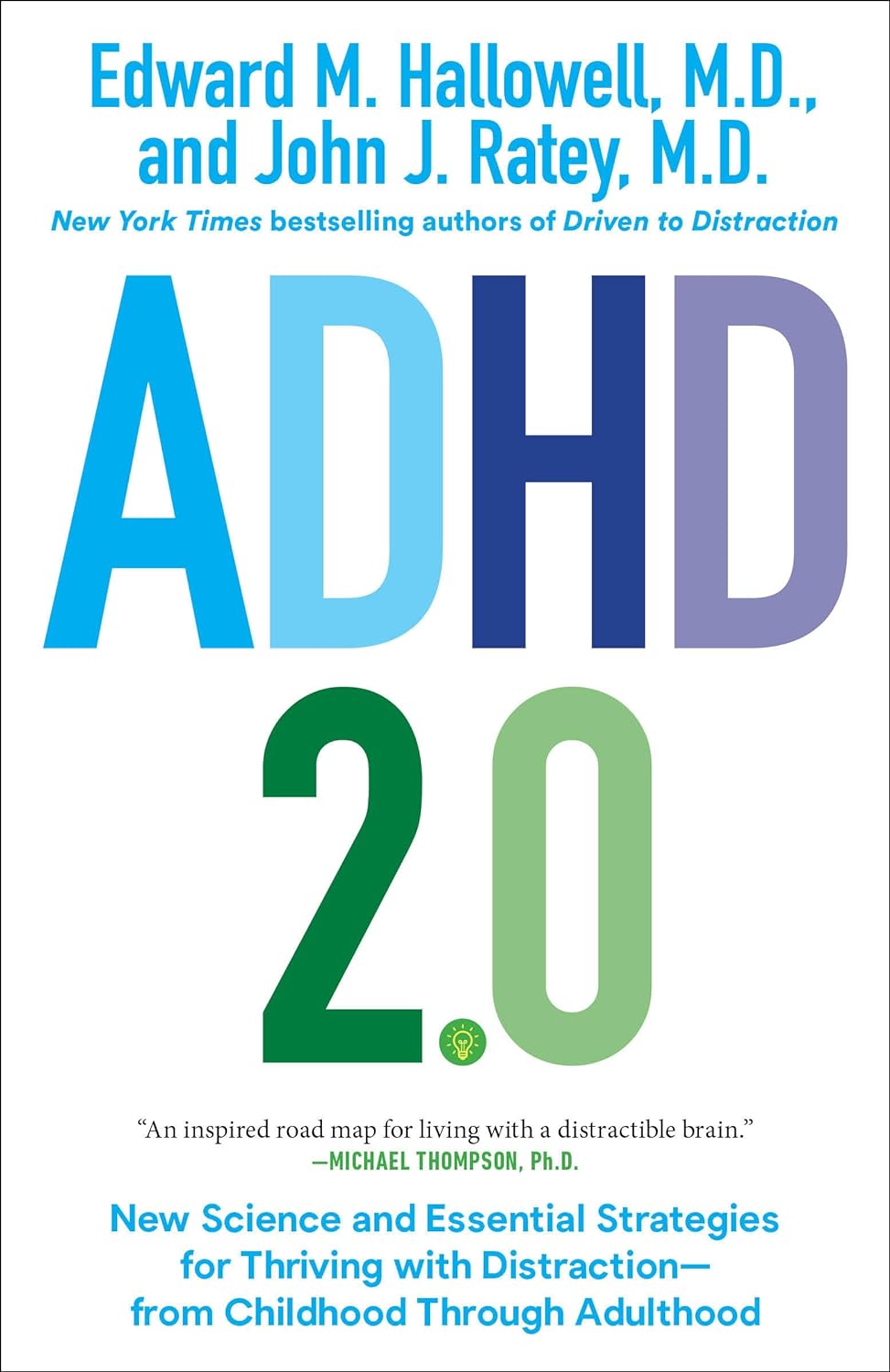
16/8 Intermittent Fasting For Beginners
10almonds is reader-supported. We may, at no cost to you, receive a portion of sales if you purchase a product through a link in this article.
Health Insider explains in super-simple fashion why and how to do Intermittent Fasting (IF), which is something that can sound complicated at first, but becomes very simple and easy once understood.
What do we need to know?
Intermittent fasting (IF) is a good, well-evidenced way to ease your body’s metabolic load, and
give your organs a chance to recover from the strain of digestion and its effects. That’s not just your gastrointestinal organs! It’s your pancreas and liver too, amongst others—this is about glucose metabolism as much as it is about digestion.
This, in turn, allows your body some downtime to do its favorite thing, which is: maintenance!
This maintenance takes the form of enhanced cellular apoptosis and autophagy, helping to keep cells young and cancer-free.
In other words, with well-practised intermittent fasting, we can reduce our risk of metabolic disease (including heart disease and diabetes) as well as cancer and neurodegeneration.
You may be wondering: this sounds miraculous; what’s the catch? There are a couple:
- While fasting from food, the body’s enhanced metabolism requires more water, so you’ll need to take extra care keep on top of your hydration (this is one reason why Ramadan fasting, while healthy for most people, is not as healthy as IF—because Ramadan fasting means abstaining from water, too).
- If you are diabetic, and especially if you have Type 1 Diabetes, fasting may not be a safe option for you, since if you get a hypo in the middle of your fasting period, it’s obviously not a good idea to wait another many hours before fixing it.
Extra note on that last one: it’s easy to think “can’t I just lower my bolus insulin instead of eating?” and while superficially yes that will raise your blood sugar levels, it’s because the sugar will be sticking around in your blood, and not actually getting released into the organs that need it. So while your blood glucose monitor may say you’re fine, you will be starving your organs and if you keep it up they may suffer serious damage.
Disclaimer: our standard legal/medical disclaimer applies, and this is intended for educational purposes only; please do speak with your endocrinologist before changing anything you usually do with regard to your blood sugar maintenance.
Ok, back onto the cheerier topic at hand:
Aside from the above: for most people, IF is a remarkably healthful practice in very many ways.
For more on the science, practicalities, and things to do/avoid, enjoy this short (4:53) video:
Click Here If The Embedded Video Doesn’t Load Automatically
Want to know more?
Check out our previous main feature on this topic:
Intermittent Fasting: Mythbusting Edition
Enjoy!
Don’t Forget…
Did you arrive here from our newsletter? Don’t forget to return to the email to continue learning!
Recommended
Learn to Age Gracefully
Join the 98k+ American women taking control of their health & aging with our 100% free (and fun!) daily emails:
-
Is It Dementia?
10almonds is reader-supported. We may, at no cost to you, receive a portion of sales if you purchase a product through a link in this article.
Spot The Signs (Because None Of Us Are Immune)
Dementia affects increasingly many people, and unlike a lot of diseases, it disproportionately affects people in wealthy industrialized nations.
There are two main reasons for this:
- Longevity (in poorer countries, more people die of other things sooner; can’t get age-related cognitive decline if you don’t age)
- Lifestyle (in the age of convenience, it has never been easier to live an unhealthy lifestyle)
The former is obviously no bad thing for those of us lucky enough to be in wealthier countries (though even in such places, good healthcare access is of course sadly not a given for all).
The latter, however, is less systemic and more epidemic. But it does cut both ways:
- An unhealthy lifestyle is much easier here, yes
- A healthier lifestyle is much easier here, too!
This then comes down to two factors in turn:
- Information: knowing about dementia, what things lead to it, what to look out for, what to do
- Motivation: priorities, and how much attention we choose to give this matter
So, let’s get some information, and then give it our attention!
More than just memory
It’s easy to focus on memory loss, but the four key disabilities directly caused by dementia (each person may not get all four), can be remembered by the mnemonic: “AAAA!”
No, somebody didn’t just murder your writer. It’s:
- Amnesia: memory loss, in one or more of its many forms
- e.g. short term memory loss, and/or inability to make new memories
- Aphasia: loss of ability to express oneself, and/or understand what is expressed
- e.g. “More people have been to Berlin than I have”
- Or even less communication-friendly, Broca’s (Expressive) Aphasia and Wernicke’s (Receptive) Aphasia
- Apraxia: loss of ability to do things, through no obvious physical disability
- e.g. staring at the bathroom mirror wondering how to brush one’s teeth
- Agnosia: loss of ability to recognize things
- e.g. prosopagnosia, also called face-blindness.
If any of those seem worryingly familiar, be aware that while yes, it could be a red flag, what’s most important is patterns of these things.
Another difference between having a momentary brainlapse and having dementia might be, for example, the difference between forgetting your keys, and forgetting what keys do or how to use one.
That said, some are neurological deficits that may show up quite unrelated to dementia, including most of those given as examples above. So if you have just one, then that’s probably worthy of note, but probably not dementia.
Writer’s anecdote: I have had prosopagnosia all my life. To give an example of what that is like and how it’s rather more than just “bad with faces”…
Recently I saw my neighbor, and I could tell something was wrong with her face, but I couldn’t put my finger on what it was. Then some moments later, I realized I had mistaken her hat for her face. It was a large beanie with a panda design on it, and that was facelike enough for me to find myself looking at the wrong face.
Subjective memory matters as much as objective
Objective memory tests are great indicators of potential cognitive decline (or improvement!), but even a subjective idea of having memory problems, that one’s memory is “not as good as it used to be”, can be an important indicator too:
Subjective memory may be marker for cognitive decline
And more recently:
If your memory feels like it’s not what it once was, it could point to a future dementia risk
If you’d like an objective test of memory and other cognitive impairments, here’s the industry’s gold standard test (it’s free):
SAGE: A Test to Detect Signs of Alzheimer’s and Dementia
(The Self-Administered Gerocognitive Exam (SAGE) is designed to detect early signs of cognitive, memory or thinking impairments)
There are things that can look like dementia that aren’t
A person with dementia may be unable to recognize their partner, but hey, this writer knows that feeling very well too. So what sets things apart?
More than we have room for today, but here’s a good overview:
What are the early signs of dementia, and how does it differ from normal aging?
Want to read more?
You might like our previous article more specifically about reducing Alzheimer’s risk:
Reducing Alzheimer’s Risk Early!
Take care!
Share This Post
-
Early Dementia Screening From Your Blood & More
10almonds is reader-supported. We may, at no cost to you, receive a portion of sales if you purchase a product through a link in this article.
Dementia is, statistically speaking, the most feared disease in the US. Notwithstanding…
- heart disease killing more
- COVID being more of a lottery
- cancer being the “yes you can modify risk factors but it can come for anyone” life-changing (and often life-ending) disease,
…it’s still dementia that Americans report fearing the most.
And yet… Early dementia screening is seriously underused
It may be a case of a head-in-sand approach to avoid unwanted news, or it could be a case of not knowing what’s available.
So, with that in mind…
How to watch out: first line warning signs
You walk into a room of your house, and suddenly stop: “what did I come in here for?”, you wonder.
A moment later, you’re worrying whether this is a sign of age-related cognitive decline.
The good news: it usually isn’t. In fact, you did that when you were younger, too, you just didn’t pay enough attention at the time to remember it now.
Dementia-related memory loss is less “where did I put my car keys?”, and more “what is this thing for?” (it’s your car keys). Or at a less advanced stage: “whose are these car keys?” (they are yours).
You can read about some of the nuances here:
Is It Dementia? Spot The Signs (Because None Of Us Are Immune) ← If you’d like an objective test of memory and other cognitive impairments, this article also has a link to the industry’s gold standard test (it’s free)
(The Self-Administered Gerocognitive Exam (SAGE) is designed to detect early signs of cognitive, memory or thinking impairments)
Tests you can’t do at home
We wrote a little while back about how one kind of blood testing for Alzheimer’s disease works:
The Brain Alarm Signs That Warn Of Dementia
Why “Brain Alarm Signs” if it’s a blood test? Because the blood gets (in very lay terms) bits of broken brain in it. Or more specifically, they tested the blood for density of cerebrovascular endothelial extracellular vesicles (CEEVs), which are bits of the cells from the lining of blood vessels in the brain. These cerebrovascular endothelial extracellular vesicles should not, ideally, be falling off and riding around your bloodstream, and the greater the density of them, the greater likelihood of mild cognitive impairment now, and by extension, dementia later.
It’s not the only blood test available though, see:
Highly accurate blood test for Alzheimer’s disease is similar or superior to clinical cerebrospinal fluid (CSF) tests ← this one checks the ratio of phosporylated-tau217 to non-phosphorylated tau (which is a protein antibody), which equalled or outperformed FDA-approved CSF tests in classifying amyloid-β positron emission topography (PET, as in a PET scan) status, with a confidence interval as high as, or better than, industry standards.
If you don’t like having your blood taken, trust us that you’d find having your cerebrospinal fluid taken even less enjoyable, so this is a very welcome improvement!
In case you’re curious about how the CSF test works, here you go: NPTX2 in Cerebrospinal Fluid Predicts the Progression From Normal Cognition to Mild Cognitive Impairment ← NPTX2 is a protein biomarker of Alzheimer’s risk
…but again, we really think the blood test is preferable.
Tests beyond the physiological
There are, of course, psychological tests that can be done, including a linguistic analysis of your conversation, compared with a vast database of other people’s conversations, with and without various degrees of cognitive impairment
As Dr. Ioannis Paschalidis explains:
❝We wanted to predict what would happen in the next six years—and we found we can reasonably make that prediction with relatively good confidence and accuracy.
Rather than using acoustic features of speech, like enunciation or speed, the model is just pulling from the content of the interview—the words spoken, how they’re structured.
You can think of the score as the likelihood, the probability, that someone will remain stable or transition to dementia. It had significant predictive ability.
Digital is the new blood. You can collect it, analyze it for what is known today, store it, and reanalyze it for whatever new emerges tomorrow.❞
You can read the full paper here: Prediction of Alzheimer’s disease progression within 6 years using speech: A novel approach leveraging language models
See also: AI: The Doctor That Never Tires?
What if the news isn’t good?
While bad news is never welcome per se, it is preferable to not knowing, insofar as we can then take steps to manage the situation.
You may be wondering: what can be done that I wouldn’t already be doing to minimize my dementia risk in the first place?
And the answer is: yes, do continue those things of course, but there is more to do:
See: Beyond Guarding Against Dementia: When Age’s Brain-Changes Come Knocking
Take care!
Share This Post
-
Turkish Saffron Salad
10almonds is reader-supported. We may, at no cost to you, receive a portion of sales if you purchase a product through a link in this article.
Summer is upon us, and we need salad options. Coleslaw’s all well and good, until you’re the 4th person to bring it to the pot luck. Tzatziki’s great—and healthier than a standard coleslaw, being based in yogurt rather than mayonnaise as most Western coleslaws are (Eastern European coleslaws, for example, more often use a vinaigrette), but today our tastebuds are traveling to Turkey for this gut-healthy, phytochemical-rich, delicious dish.
You will need
- 12 oz carrots, cut into very thin batons (alternatively: use a peeler to peel it into super-thin strips)
- 2 oz chopped nuts (pistachios are traditional, almonds are also used sometimes; many other nuts would work too e.g. walnuts, hazelnuts, etc; not peanuts though)
- 2 cups kefir yogurt (if unavailable, substitute any 2 cups plain unsweetened yogurt; comparable plant yogurt is fine if you’re vegan; those healthy bacteria love plant yogurts as much as animal ones)
- 1 bulb garlic, grated
- 1 tsp chili flakes
- 1 pinch saffron, ground, then soaked in 1 tbsp warm water for a few hours
- 2 tbsp olive oil for cooking; ideally Extra Virgin, but at least Virgin
Method
(we suggest you read everything at least once before doing anything)
1) Put the olive oil and carrots into a saucepan and heat gently, stirring. You want to soften the carrots just a little and absorb the olive oil, without actually fully cooking the carrots; this will probably only take 2–3 minutes at most. Take it off the heat and transfer it to a bowl to cool.
When the mixture has cooled…
2) Add the kefir yogurt, garlic, chili flakes, and saffron water into the carrots, mixing thoroughly.
3) Add the chopped nuts as a garnish
(after mixing thoroughly, you will probably see more of the yogurt mixture and less of the carrots; that’s fine and correct))
Enjoy!
Want to learn more?
For those interested in some of the science of what we have going on today:
- Making Friends With Your Gut (You Can Thank Us Later)
- The Many Health Benefits Of Garlic
- Capsaicin For Weight Loss And Against Inflammation
- Why You Should Diversify Your Nuts!
- Saffron For The Brain (& More) ← do not underestimate saffron’s neuroprotective qualities, and many other beneficial properties!
Take care!
Share This Post
Related Posts
-
7-Minute Face Fitness For Lymphatic Drainage & Youthful Jawline
10almonds is reader-supported. We may, at no cost to you, receive a portion of sales if you purchase a product through a link in this article.
Valeriia Veksler is a registered nurse with a background in cosmetic medicine. She’s been practicing for 7 years, and on the strength of that, is going to teach us how to give our face some love for 7 minutes:
The routine, step by step
Preparation: clean your face and apply your usual moisturizer. Breathe deeply: Inhale through the nose, exhale to release tension.
Neck massage: use fingertips in circular motion from the bottom of the neck to the hairline and back for 30 seconds. This helps promote blood flow to the face.
Sternocleidomastoid massage: use knuckles to massage in circles from the sternal area up to the jawline and down to the collarbone for 30 seconds. Keep posture straight, shoulders down, and relax muscles.
Collarbone pressure: apply and release pressure with fingertips above the collarbones for 30 seconds. This stimulates lymphatic flow and helps reduce puffiness.
Under-chin massage: use knuckles to massage side-to-side under the chin for 30 seconds. Relax the under-chin area and promote lymphatic drainage.
Jawline massage: with knuckles, massage from the chin towards the ears in circular motion for 30 seconds. Relax the jaw.
Nasolabial fold and nose massage: place index fingers near nostrils and move mouth in a “O” shape, then massage around the nostrils and up the nose for 30 seconds.
Smile line lift: press palms on the smile lines and slide hands up towards the temples for 30 seconds. This helps lift the face and sculpt cheekbones.
Under-eye massage: use index fingers in a hook shape, massaging under the eyes along the bone structure for 30 seconds. This promotes blood flow and lymphatic drainage.
Temple lift: use fingertips to lift the area near the left temple for 30 seconds, then assist with the opposite hand to lift further. Repeat on the other side. This reduces crow’s feet and lifts the corners of the eyes.
Forehead lift: place hands on the forehead, lock fingers, and gently elevate the skin upwards. Glide fingers towards the hairline for 30 seconds. This promotes blood flow and smooths the forehead.
Relax 11 Lines: place fingers at the center of the forehead, gently press into the tissue, and let them glide away from each other towards the eyebrows for 30 seconds.
Bonus:
- Ensure good posture throughout.
- Relax, stay mindful, and breathe deeply during the exercises.
- Feel the warmth and energy from improved circulation, after the routine.
For more on all of this plus a visual demonstration of everything, enjoy:
Click Here If The Embedded Video Doesn’t Load Automatically!
Want to learn more?
You might also like to read:
Top 10 Foods That Promote Lymphatic Drainage and Lymph Flow
Take care!
Don’t Forget…
Did you arrive here from our newsletter? Don’t forget to return to the email to continue learning!
Learn to Age Gracefully
Join the 98k+ American women taking control of their health & aging with our 100% free (and fun!) daily emails:
-
Improve Your Insulin Sensitivity!
10almonds is reader-supported. We may, at no cost to you, receive a portion of sales if you purchase a product through a link in this article.
We’ve written before about blood sugar management, for example:
10 Ways To Balance Blood Sugars ← this one really is the most solid foundation possible; if you do nothing else, do these 10 things!
And as for why we care:
Good (Or Bad) Health Starts With Your Blood
…because the same things that cause type 2 diabetes, go on to cause many other woes, with particularly strong comorbidities in the case of Alzheimer’s disease and other dementias, as well as heart disease of various kinds, and a long long laundry list of immune dysfunctions / inflammatory disorders in general.
In short, if you can’t keep your blood sugars even, the rest of your health will fall like so many dominoes.
Getting a baseline
Are you counting steps? Counting calories? Monitoring your sleep? Heart rate zones? These all have their merits:
- Steps: One More Resource Against Osteoporosis!
- Calories: Is Cutting Calories The Key To Healthy Long Life?
- Sleep: A Head-To-Head Of Google and Apple’s Top Apps For Getting Your Head Down
- Heart Rate Zones: Heart Rate Zones, Oxalates, & More
But something far fewer people do unless they have diabetes or are very enthusiastic about personal health, is to track blood sugars:
Here’s how: Track Your Blood Sugars For Better Personalized Health
And for understanding some things to watch out for when using a continuous glucose monitor:
Continuous Glucose Monitors Without Diabetes: Pros & Cons
Writer’s anecdote: I decided to give one a try for a few months, and so far it has been informative, albeit unexciting. It seems that with my diet (mostly whole-foods plant based, though I do have a wholegrain wheat product about twice per week (usually: flatbread once, pasta once) which is… Well, we could argue it’s whole-food plant based, but let’s be honest, it’s a little processed), my blood sugars don’t really have spikes at all; the graph looks more like gently rolling low hills (which is good). However! Even so, by experimenting with it, I can see for myself what differences different foods/interventions make to my blood sugars, which is helpful, and it also improves my motivation for intermittent fasting. It also means that if I think “hmm, my energy levels are feeling low; I need a snack” I can touch my phone to my arm and find out if that is really the reason (so far, it hasn’t been). I expect that as I monitor my blood sugars continuously and look at the data frequently, I’ll start to get a much more intuitive feel for my own blood sugars, in much the same way I can generally intuit my hormone levels correctly after years of taking-and-testing.
So much for blood sugars. Now, what about insulin?
Step Zero
If taking care of blood sugars is step one, then taking care of insulin is step zero.
Often’s it’s viewed the other way around: we try to keep our blood sugars balanced, to reduce the need for our bodies to produce so much insulin that it gets worn out. And that’s good and fine, but…
To quote what we wrote when reviewing “Why We Get Sick” last month:
❝Dr. Bikman makes the case that while indeed hyper- or hypoglycemia bring their problems, mostly these are symptoms rather than causes, and the real culprit is insulin resistance, and this is important for two main reasons:
- Insulin resistance occurs well before the other symptoms set in (which means: it is the thing that truly needs to be nipped in the bud; if your fasting blood sugars are rising, then you missed “nipping it in the bud” likely by a decade or more)
- Insulin resistance causes more problems than “mere” hyperglycemia (the most commonly-known result of insulin resistance) does, so again, it really needs to be considered separately from blood sugar management.
This latter, Dr. Bikman goes into in great detail, linking insulin resistance (even if blood sugar levels are normal) to all manner of diseases (hence the title).
You may be wondering: how can blood sugar levels be normal, if we have insulin resistance?
And the answer is that for as long as it is still able, your pancreas will just faithfully crank out more and more insulin to deal with the blood sugar levels that would otherwise be steadily rising. Since people measure blood sugar levels much more regularly than anyone checks for actual insulin levels, this means that one can be insulin resistant for years without knowing it, until finally the pancreas is no longer able to keep up with the demand—then that’s when people finally notice.❞
You can read the full book review here:
Now, testing for insulin is not so quick, easy, or accessible as testing for glucose, but it can be worthwhile to order such a test—because, as discussed, your insulin levels could be high even while your blood sugars are still normal, and it won’t be until the pancreas finally reaches breaking point that your blood sugars show it.
So, knowing your insulin levels can help you intervene before your pancreas reaches that breaking point.
We can’t advise on local services available for ordering blood tests (because they will vary depending on location), but a simple Google search should suffice to show what’s available in your region.
Once you know your insulin levels (or even if you don’t, but simply take the principled position that improving insulin sensitivity will be good regardless), you can set about managing them.
Insulin sensitivity is important, because the better it is (higher insulin sensitivity), the less insulin the pancreas has to make to tidy up the same amount of glucose into places that are good for it to go—which is good. In contrast, the worse it is (higher insulin resistance), the more insulin the pancreas has to make to do the same blood sugar management. Which is bad.
What to do about it
We imagine you will already be eating in a way that is conducive to avoiding or reversing type 2 diabetes, but for anyone who wants a refresher,
See: How To Prevent And Reverse Type 2 Diabetes
…which yes, as well as meaning eating/avoiding certain foods, does recommend intermittent fasting. For anyone who wants a primer on that,
See: Intermittent Fasting: Methods & Benefits
There are also drugs you may want to consider:
Metformin Without Diabetes, For Weight-Loss & More
And “nutraceuticals” that sound like drugs, for example:
Glutathione’s Benefits: The Usual And The Unique ← the good news is, it’s found in several common foods
You may have heard the hype about “nature’s Ozempic”, and berberine isn’t exactly that (works in mostly different ways), but its benefits do include improving insulin sensitivity:
Berberine For Metabolic Health
Lastly, while eating for blood sugar management is all well and good, do be aware that some things affect insulin levels without increased blood sugar levels. So even if you’re using a CGM, you may go blissfully unaware of an insulin spike, because there was no glucose spike on the graph—and in contrast, there could even be a dip in blood sugar levels, if you consumed something that increased insulin levels without providing glucose at the same time, making you think “I should have some carbs”, which visually on the graph would even out your blood sugars, but invisibly, would worsen the already-extant insulin spike.
Read more about this: Strange Things Happening In The Islets Of Langerhans: When Carbs, Proteins, & Fats Switch Metabolic Roles
Now, since you probably can’t test your insulin at a moment’s notice, the way to watch out for this is “hmm, I ate some protein/fats (delete as applicable) without carbs and my blood sugars dipped; I know what’s going on here”.
Want to know more?
We heartily recommend the “Why We Get Sick” book we linked above, as this focuses on insulin resistance/sensitivity itself!
However, a very good general primer on blood sugar management (and thus, by extension, at least moderately good insulin management), is:
Glucose Revolution: The Life-Changing Power of Balancing Your Blood Sugar – by Jessie Inchauspé
Enjoy!
Don’t Forget…
Did you arrive here from our newsletter? Don’t forget to return to the email to continue learning!
Learn to Age Gracefully
Join the 98k+ American women taking control of their health & aging with our 100% free (and fun!) daily emails:
-
ADHD 2.0 – by Dr. Edward Hallowell & Dr. John Ratey
10almonds is reader-supported. We may, at no cost to you, receive a portion of sales if you purchase a product through a link in this article.
A lot of ADHD literature is based on the assumption that the reader is a 30-something parent of a child with ADHD. This book, on the other hand, addresses all ages, and includes just as readily the likelihood that the person with ADHD is the reader, and/or the reader’s partner.
The authors cover such topics as:
- ADHD mythbusting, before moving on to…
- The problems of ADHD, and the benefits that those exact same traits can bring too
- How to leverage those traits to get fewer of the problems and more of the benefits
- The role of diet beyond the obvious, including supplementation
- The role of specific exercises (especially HIIT, and balance exercises) in benefiting the ADHD brain
- The role of medications—and arguments for and gainst such
The writing style is… Thematic, let’s say. The authors have ADHD and it shows. So, expect comprehensive deep-dives from whenever their hyperfocus mode kicked in, and expect no stones left unturned. That said, it is very readable, and well-indexed too, for ease of finding specific sub-topics.
Bottom line: if you are already very familiar with ADHD, you may not learn much, and might reasonably skip this one. However, if you’re new to the topic, this book is a great—and practical—primer.
Don’t Forget…
Did you arrive here from our newsletter? Don’t forget to return to the email to continue learning!
Learn to Age Gracefully
Join the 98k+ American women taking control of their health & aging with our 100% free (and fun!) daily emails:








